
The Guantanamo military commissions were established by President George W. Bush – through a Military Order – on November 13, 2001, to try certain non-citizen terrorism suspects at the Guantanamo Bay prison. To date, there have been a total of eight convictions in the military commissions, six through plea agreements with the defendants. Several of the eight convictions have been overturned in whole or in part on appeal, mostly by U.S. federal courts.

Lee Scott Wolosky is an American diplomat and attorney who served under four U.S. presidents in legal and national security positions, most recently as Special Counsel to President Joe Biden. He is currently co-chair of the Litigation Department and a member of the Management Committee at Jenner & Block LLP
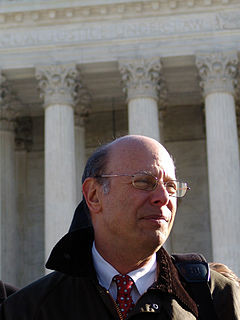
Michael Ratner was an American attorney. For much of his career, he was president of the Center for Constitutional Rights (CCR), a non-profit human rights litigation organization based in New York City, and president of the European Center for Constitutional and Human Rights (ECCHR) based in Berlin.
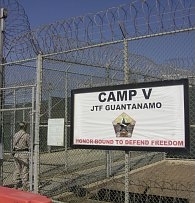
The Guantanamo Bay detention camp is a United States military prison located within Guantanamo Bay Naval Base, also referred to as Guantánamo, GTMO, and Gitmo, on the coast of Guantánamo Bay in Cuba. Of the roughly 780 people detained there since January 2002 when the military prison first opened after the September 11 attacks, 735 have been transferred elsewhere, 36 remain there, and 9 have died while in custody.
In United States law, habeas corpus is a recourse challenging the reasons or conditions of a person's detention under color of law. The Guantanamo Bay detention camp is a United States military prison located within Guantanamo Bay Naval Base. A persistent standard of indefinite detention without trial and incidents of torture led the operations of the Guantanamo Bay detention camp to be challenged internationally as an affront to international human rights, and challenged domestically as a violation of the Due Process Clause of the Fifth and Fourteenth amendments of the United States Constitution, including the right of petition for habeas corpus. In 19 February 2002, Guantanamo detainees petitioned in federal court for a writ of habeas corpus to review the legality of their detention.
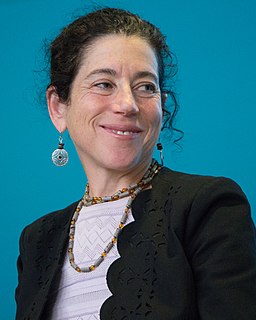
Jennifer C. Daskal is a Professor of Law and Faculty Director of the Tech, Law, Security Program at the Washington College of Law at American University. Her work focuses on terrorism, national security and criminal law. She previously served as senior counsel for Human Rights Watch, focusing on similar issues. She also worked in the Department of Justice during the Obama administration, which was seeking to prosecute terror suspects through the criminal justice system instead of through military tribunals.

Ricardo M. Urbina is a former United States District Judge of the United States District Court for the District of Columbia.

The Torture Papers: The Road To Abu Ghraib is a book about the use of controversial techniques in the interrogation and detention of captives of the US. The book is a collection of documents, edited by Karen J. Greenberg and Joshua L. Dratel, two authors who have worked together on several books.
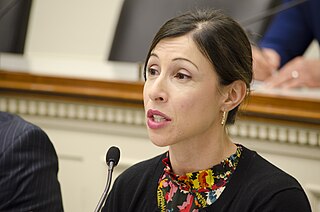
Andrea J. Prasow is an American attorney and global human rights advocate. She leads The Freedom Initiative, a U.S.-based organization whose mission is "to bring international attention to the plight of political prisoners in the Middle East and advocate for their release." Prasow was appointed as The Freedom Initiative's executive director in November 2021.
Karen LeCraft Henderson is a United States Circuit Judge of the United States Court of Appeals for the District of Columbia Circuit and a former United States District Judge of the United States District Court for the District of South Carolina.
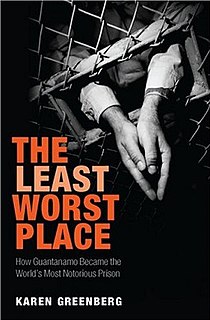
The Least Worst Place: How Guantanamo Became the World's Most Notorious Prison is a 2009 book about the first several months of the operation of the Guantanamo Bay detention camps, in Cuba. The book's author, Karen J. Greenberg is Director of the Center on National Security at Fordham University's School of Law, and the author or co-author of several books on the George W. Bush Presidency's captive policies.
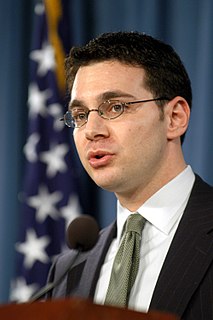
Matthew C. Waxman is an American law professor at Columbia University and author who held several positions during the George W. Bush administration. He is also currently a Fellow at the Hoover Institution on War, Revolution and Peace.

Carol Rosenberg is a senior journalist at The New York Times. Long a military-affairs reporter at the Miami Herald, from January 2002 into 2019 she reported on the operation of the United States' Guantanamo Bay detention camps, at its naval base in Cuba. Her coverage of detention of captives at the Guantanamo Bay detention camp has been praised by her colleagues and legal scholars, and in 2010 she spoke about it by invitation at the National Press Club. Rosenberg had previously covered events in the Middle East. In 2011, she received the Robert F. Kennedy Journalism Award for her nearly decade of work on the Guantanamo Bay detention camp.
Cage is a London-based advocacy organisation which aims to empower communities impacted by the War on Terror. Cage highlights and campaigns against state policies, developed as part of the War on Terror. The organisation was formed to raise awareness of the plight of detainees held at Guantánamo Bay and elsewhere and has worked closely with former detainees held by the United States and campaigns on behalf of current detainees held without trial.
Margot Williams is a journalist and research librarian, who was part of teams at the Washington Post that won two Pulitzer Prizes. In 1998, Williams was part of a team that won the Pulitzer Gold Medal for public service for reporting on the high rate of police shootings in Washington, D.C. In 2002, Williams was part of a team that won the Pulitzer Prize for National Reporting for its coverage of the "war on terror".
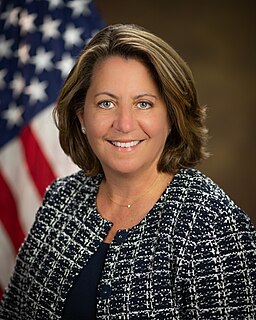
Lisa Oudens Monaco is an American attorney, former federal prosecutor and national security official who has served as the 39th deputy attorney general of the United States since April 2021.

Stephen Isaiah Vladeck is the Charles Alan Wright Chair in Federal Courts at the University of Texas School of Law, where he specializes in national security law, especially with relation to the prosecution of war crimes. Vladeck has commented on the legality of the United States' use of extrajudicial detention and torture, and is a regular contributor to CNN.
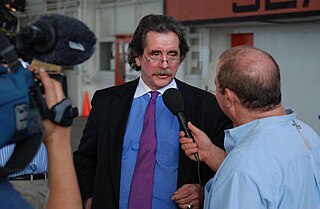
Thomas Anthony Durkin is a criminal defense attorney in Chicago. He specializes in civil rights and domestic terrorism cases.
Alexanda Amon Kotey, known as Jihadi George, is a former British citizen who in 2021 in a U.S. Federal Court pleaded guilty to "hostage-taking resulting in death and providing material support to the Islamic State group from 2012 through 2015".
Hussein Abebe is a mine owner from Tanzania who US prosecutors claimed sold hundreds of pounds of TNT to Ahmed Ghailani, which were then used to bomb US embassies in Africa. Abebe's own capture, and his potential testimony against Ghailani, stirred controversy, as it followed confessions extracted from Ghailani under torture in Central Intelligence Agency black sites.













